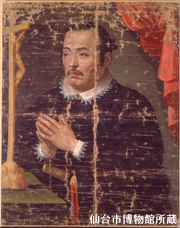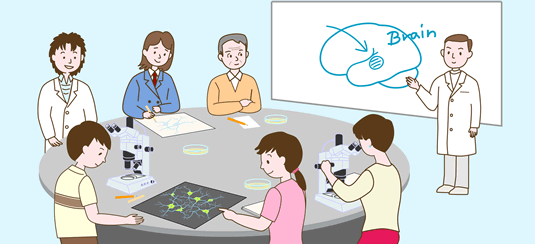In order to raise people with a global view and a bold, challenging spirit, including graduate students, post-doctoral researchers, and young researchers, this Center has the HASEKURA Fellowship that is a comprehensive international educational research fund for international support. Through it, Japanese graduate students can receive financial support for short-term study at an overseas cooperative university and attendance at or presentations to an international conference.
We will hold international symposiums domestically and overseas as a COE and offer space for international exchanges. Furthermore, we will invite top foreign graduate students and post-doctoral researchers who live inside and outside Japan to participate in this GBS course, and develop younger researchers.

